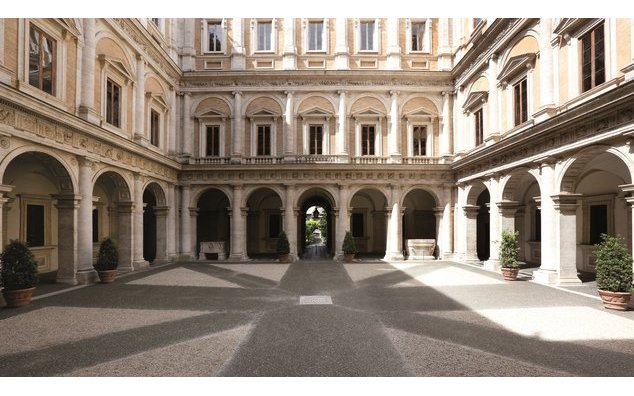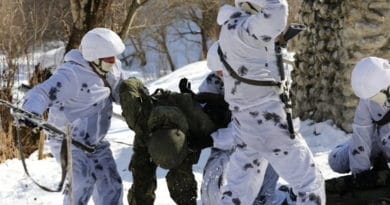Between France and Germany, more than a gap
 (BRUSSELS2 to Berlin) I was in the German capital today (with my friends from IHEDN). The opportunity to concretely rub shoulders with the Franco-German "couple" or rather a "hitch" as described by a French diplomat.
(BRUSSELS2 to Berlin) I was in the German capital today (with my friends from IHEDN). The opportunity to concretely rub shoulders with the Franco-German "couple" or rather a "hitch" as described by a French diplomat.
Difference in language, difference in perception
Indeed, in terms of defence, between France and Germany, there is more than one difference, it is totally different perceptions that oppose French and Germans. We thus had an interesting dialogue with the auditors of the BAKS (Bundes Akademie für Sicherheit Politik). When the French talk about "the action" in front of "an imminent threat". The Germans respond "need to set a strategy"And"to persuade opinions". The First Speak"speed of decision". The seconds answer "necessary consultation of Parliament".
Parliamentary authorization or not
This parliamentary authorization for each commitment abroad is totally foreign to French-speaking ears and could appear as an outdated caution, synonymous with a lack of will to intervene. Yet it is an intrinsic element of democracy, rooted in German history. Not to consider it at this true value would be a serious error. Because it does not prevent the will from intervening. The proof. The Germans will be present in Mali. The social democratic opposition like Verte (apart from a few exceptions) voting with the conservatives of the CDU and the liberals of the FDP the two necessary mandates: one to commit soldiers to the EUTM Mali mission (including the possibility to provide security and protection forces for its deployed soldiers); the other to support the planes engaged in the Misma operation.
Admittedly, this double obligation to bring together a government mandate and a parliamentary majority requires a certain rigidity - and a certain rigor - strange to French ears. But it is not entirely incompatible with certain commitments. We must therefore not ask the Germans to look like the French, but take into account their legitimate constraints (*). And draw operational consequences (read: The ability to enter first…).
Despite all these differences, in this 'construction of opposites', there is something like a necessity, which is not only operational but political! The arrival of a new majority after the elections in September (grand coalition red-black SPD/CDU or green-red coalition Grünen-SPD, or other...) will undoubtedly be the opportunity to give new impetus to this cooperation. But any effort will have to be carried out at the highest level – between the chancellery and the presidency of the Republic. He will have to take into account the realities on both sides of the Rhine (and not be satisfied with soft and agreed words which do not change anything on the ground), be ambitious (we cannot be satisfied with exchanges of officer of joint liaison or training, or a symbolic Franco-German brigade but not very consistent on the ground), progressive (planning stages) and being broad (embracing all sectors). Good luck to the negotiators...
(*) Admittedly, some MEPs - such as the CDU Andreas Schokenhoff - would like to question this authorisation, thus advocating an "abandonment of sovereignty" in favor of the European sphere and a "relaxation of the parliamentary scrutiny reserve". This would be replaced on the one hand by an annual debate on the main orientations of security policy, deciding on the commitments of soldiers in international missions (NATO or EU); on the other hand by a "right of recall" of the legislator. But it is not certain that this opinion is very majority.

